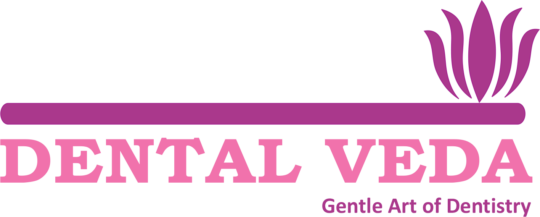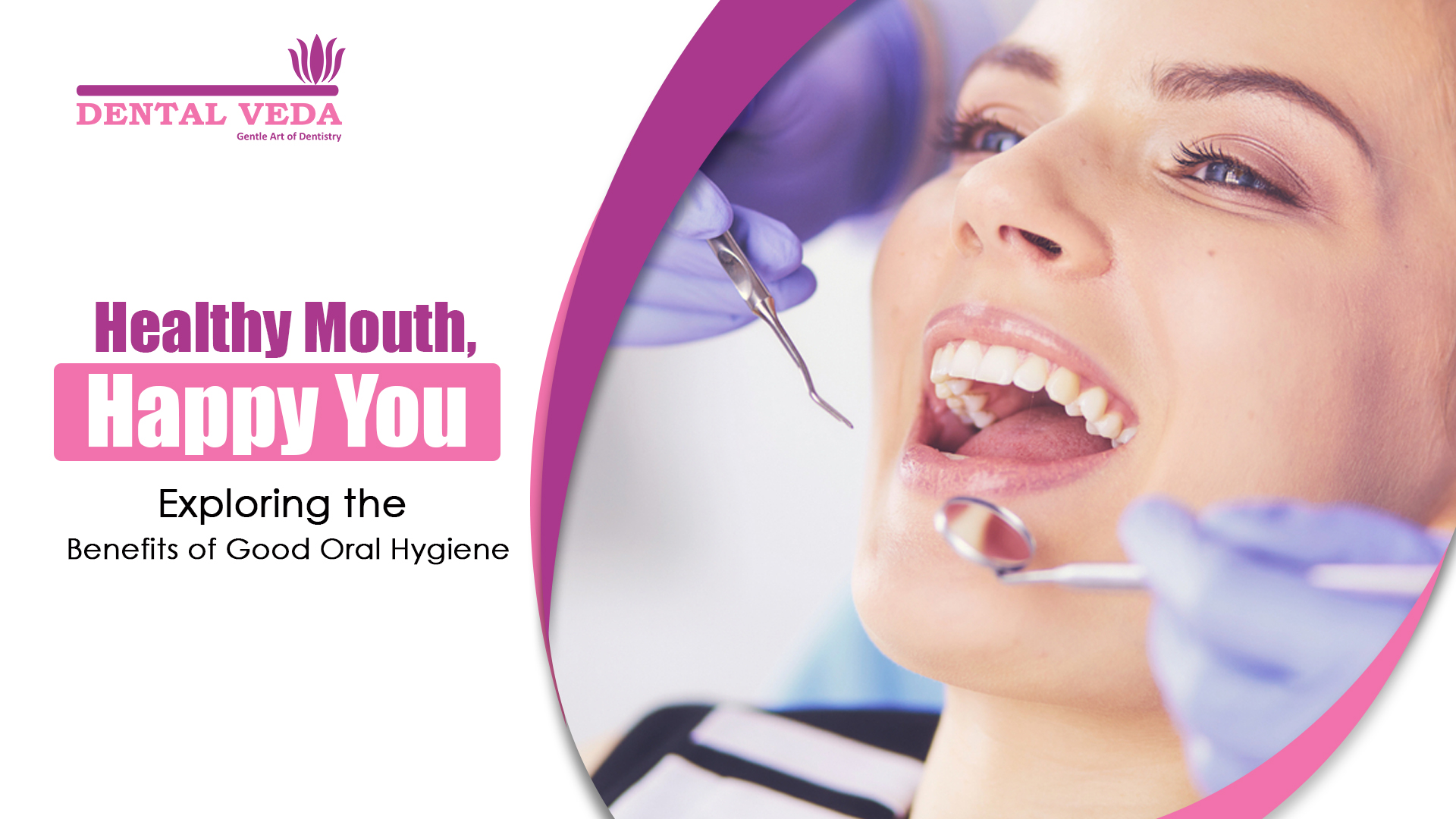Picture your smile as a masterpiece. This is where oral hygiene comes into play. One that you carry with you wherever you go. Just like any masterpiece, it requires care, attention, and maintenance. Beyond the obvious advantages of fresh breath and a dazzling smile, proper oral care holds the key to preventing a host of dental issues that could put a damper on your day. Cavities, gum disease, tooth sensitivity– all of these can be kept at bay by embracing the power of good oral hygiene.
The connection between Oral Health and Overall Well-Being:
But wait, there’s more! Your mouth isn’t just an isolated entity; it’s intricately connected to the rest of your body. Think of it as the backstage pass to your overall well-being. Did you know that your oral health can provide insights into your systemic health? The health of your gums and teeth can offer clues about conditions like diabetes, heart disease, and even osteoporosis. This intricate connection underscores the idea that caring for your mouth is like tending to a guardian of your overall health.
So, fasten your seatbelt as we delve into the world of oral hygiene – a world that holds the secret to a happier, healthier you.
The Basics of Oral Hygiene
Brushing Techniques:
-
Frequency and Duration:
Brushing your teeth isn’t just a morning ritual; it’s an essential habit that deserves attention both morning and night. Aim for brushing at least twice a day, ideally after meals. Each brushing session should last about two minutes.
-
Proper Brushing Technique:
Now, let’s talk technique. Think of your teeth as a group photo and your toothbrush as the skilled photographer capturing every detail. Hold your brush at a 45-degree angle to your gums, ensuring the bristles touch the gum line and tooth surface. Use gentle circular motions or short back-and-forth strokes. Don’t forget the chewing surfaces and your tongue – they’re part of the picture too! And, if you’re using an electric toothbrush, let it do the work – simply guide it along your teeth.
Importance of Flossing:
-
Removing Food Particles and Plaque:
Flossing isn’t just a dental care add-on; it’s a superhero that swoops in to save the day. Even the most diligent brushing can miss those tight spaces between teeth. That’s where flossing comes in. By gliding floss between your teeth, you’re removing hidden food particles that can lead to decay and gum irritation. Plus, you’re targeting plaque – that sticky film of bacteria that loves to set up camp between your teeth.
-
Reaching Areas Between Teeth:
Think of floss as your personal space invader – the friendly kind! Those hard-to-reach spots between teeth are where gum disease often starts. Flossing daily prevents plaque buildup in these areas, ensuring that your teeth have a clean canvas to shine on.
The Role of Diet in Oral Health
Impact of Sugary Foods:
-
Formation of Plaque and Cavities:
While delightful to the taste buds, Sugary foods can be detrimental to oral health. When you consume sugary treats, the bacteria in your mouth feast on these sugars, producing acid as a byproduct. This acid attack weakens tooth enamel, forming plaque – that sticky film you can feel on your teeth. Over time, plaque can erode your teeth’s protective layer, causing cavities to form.
-
Importance of Moderation:
Moderation is the name of the game. While the occasional indulgence is fine, excessive consumption of sugary foods and drinks increases your risk of dental problems. It’s not just the quantity of sugar but also the frequency – sipping on sugary beverages throughout the day exposes your teeth to prolonged acid attacks. Opt for healthier alternatives and try to enjoy sugary treats during meals to minimize their impact on your teeth.
Nutrient-Rich Foods:
-
Promoting Gum Health:
Your gums are crucial to oral health. Nutrient-rich foods like fruits and vegetables provide vitamins and minerals that nourish your gums. Vitamin C, for instance, is essential for gum health as it helps prevent gum disease by strengthening blood vessels and connective tissues. Including leafy greens, citrus fruits, and berries in your diet can contribute to strong and resilient gums.
-
Strengthening Teeth and Jawbone:
Just as your body needs a balanced diet for overall health, your teeth and jawbone benefit from proper nutrition. Foods rich in calcium, such as dairy products, leafy greens, and almonds, help maintain strong teeth and jawbone density. Phosphorus, found in sources like lean meats, eggs, and beans, also contributes to tooth enamel health, ensuring your teeth remain sturdy.
Benefits of Good Oral Hygiene
Prevention of Dental Issues:
-
Cavities and Gum Disease:
Good oral hygiene is like a shield against dental problems. Regular brushing and flossing remove the bacteria-laden plaque that accumulates on your teeth. If not removed, this plaque can lead to cavities (tooth decay) and gum disease (gingivitis and periodontitis). By diligently caring for your teeth, you’re preventing these issues from gaining a foothold.
-
Tooth Decay and Enamel Erosion:
Tooth decay is a result of the breakdown of tooth enamel by acids produced by bacteria. Brushing and flossing help remove food particles that can lead to this acid formation. Enamel erosion, on the other hand, is caused by acids from foods and drinks. Practicing good oral hygiene can help minimize the impact of these acids on your teeth, preserving your enamel’s strength.
Fresh Breath:
-
Eliminating Bacteria that Cause Bad Breath:
Say goodbye to embarrassing moments caused by bad breath. Regular brushing, flossing, and cleaning your tongue help remove the bacteria that produce foul odors in your mouth. This not only improves your breath but also contributes to a fresher-feeling mouth.
-
Boosting Confidence in Social Interactions:
Fresh breath is a confidence booster. Knowing that your breath is clean and pleasant can alleviate anxiety in social situations. Good oral hygiene can give you the confidence to engage without worrying about bad breath, whether it’s a job interview or a casual conversation.
Improved Overall Health:
-
Connection Between Oral Health and Systemic Conditions:
Oral health is intricately connected to your overall health. Poor oral hygiene has been linked to various systemic conditions, including cardiovascular diseases, diabetes, and respiratory infections. Bacteria from gum infections can enter the bloodstream and contribute to inflammation in other parts of the body.
-
Reducing the Risk of Heart Disease and Diabetes:
By maintaining good oral hygiene, you’re potentially lowering your risk of serious health issues. Research suggests that the inflammation and bacteria associated with gum disease might contribute to the development of heart disease and worsen diabetes control. Taking care of your oral health could be a proactive step toward protecting your overall well-being.
Tips for Effective Oral Hygiene
-
Regular Dental Checkups:
Regular dental checkups are the cornerstone of effective oral hygiene. Typically recommended every six months, these appointments allow your dentist to monitor your oral health, detect issues in their early stages, and provide professional cleanings to remove stubborn plaque and tartar. Dental checkups also provide an opportunity to discuss any concerns or changes you’ve noticed in your oral health.
-
Using Fluoridated Toothpaste:
Selecting the right toothpaste can make a significant difference. Fluoridated toothpaste is a superstar in oral hygiene. Fluoride helps strengthen tooth enamel, making your teeth more resistant to decay. When brushing, apply a pea-sized amount of fluoride toothpaste to your toothbrush and brush for the recommended two minutes, paying attention to each tooth’s surface.
-
Choosing the Right Toothbrush:
The toothbrush you choose plays a vital role in your oral hygiene routine. Opt for a soft-bristle toothbrush to effectively clean teeth without causing damage to the enamel or gums. Consider a toothbrush with a comfortable grip and compact head that can easily reach all areas of your mouth. Remember to replace your toothbrush or toothbrush head every three to four months or sooner if the bristles are frayed.
-
Incorporating Mouthwash:
Mouthwash, also known as a mouth rinse or oral rinse, can be a valuable addition to your oral care routine. It can help reduce bacteria, freshen your breath, and provide additional protection against cavities and gum disease. Look for a mouthwash that carries the American Dental Association (ADA) seal of approval. However, keep in mind that mouthwash should complement, not replace, brushing and flossing.
Conclusion
Remember that your oral hygiene journey isn’t just about preventing cavities or having a radiant smile – it’s about nurturing your body’s gateway to health and happiness. By taking care of your oral health, you’re taking a proactive step toward a more vibrant, confident, and well-rounded you.
So, as you embark on each day with a toothbrush in hand and a commitment to oral well-being in your heart, remember that you’re not just caring for your teeth – you’re embracing a path that leads to a healthier, happier you.
Contact the best dental clinic in Gurgaon, Dental Veda, for more information.
Frequently Asked Questions
Why is oral hygiene important?
Oral hygiene is crucial for maintaining healthy teeth, gums, and overall well-being. It helps prevent dental issues like cavities, gum disease, and bad breath, and it's linked to systemic health conditions like heart disease and diabetes.
Can oral health impact overall health?
Yes, there's a strong connection between oral health and overall health. Poor oral hygiene has been linked to conditions like heart disease, diabetes, and respiratory infections.
How often should I have dental checkups?
Regular dental checkups are typically recommended every six months. Your dentist can monitor your oral health, detect issues early, and provide professional cleanings.
Can I improve my smile's appearance through oral hygiene?
Absolutely. Good oral hygiene enhances your smile's appearance by maintaining healthy teeth and gums. Regular care can prevent staining, decay, and other issues that affect aesthetics.


